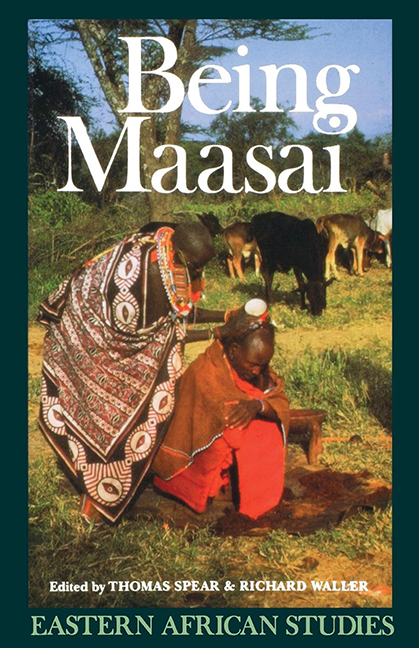V - Conclusions
Published online by Cambridge University Press: 30 August 2017
Summary
At the beginning of this century, S.L.Hinde, one of the first administrative officers among the Kenya Maasai, published a book entitled The Last of the Masai (Hinde and Hinde, 1901). His counterpart in Tanganyika, Moritz Merker, concluded the first serious ethnography of the Maasai with similarly gloomy views (Merker, 1910: 351):
The process of settlement… will probably be accomplished slowly, but with appalling sacrifices of human life and by the destruction of the tribe as such. A small section, who are now richest in stock, may … continue to live as nomads, or the poorest, by way of agriculture, may become nomadic again and graze their herds in enforced peacefulness. But even these will then have ceased to be Masai, for a Masai with a shepherd's staff and pipe is a Masai no longer.
Hinde's and Merker's dismal prophecies have been echoed in many subsequent accounts, and now, almost a century later, Hinde's title itself has been revived on the cover of yet another glossy book for tourists (Amin and Willetts, 1990). While Hinde and Merker believed that the Maasai would be swallowed up by agriculture and inter-breeding, later writers have blamed sedentarization, education and the encroachment of capitalism for their impending, but regrettable, demise.
Why this predisposition always to see the Maasai — and, indeed, ‘real pastoralists’ generally — as a dying breed? Partly, no doubt, it stems from a mixture of romantic nostalgia and fashionable guilt, but it also suggests that western observers have always had a far more rigid attachment to the outward trappings of ‘tribe’ than the ‘tribesmen’ themselves. Few have questioned whether the Maasai, whose passing they deplore, are not simply one particular manifestation of a general, enduring but highly mutable and varied identity which they happen to observe on the point of its apparently becoming something else. Maasai themselves were clearly more optimistic about their future, as Merker himself continued (Merker, 1910: 351):
In the face of such expectations for the future, it affects one almost painfully when one hears how firmly the Masai believe in the restoration of their might …
- Type
- Chapter
- Information
- Being MaasaiEthnicity and Identity in East Africa, pp. 290 - 302Publisher: Boydell & BrewerPrint publication year: 1993

